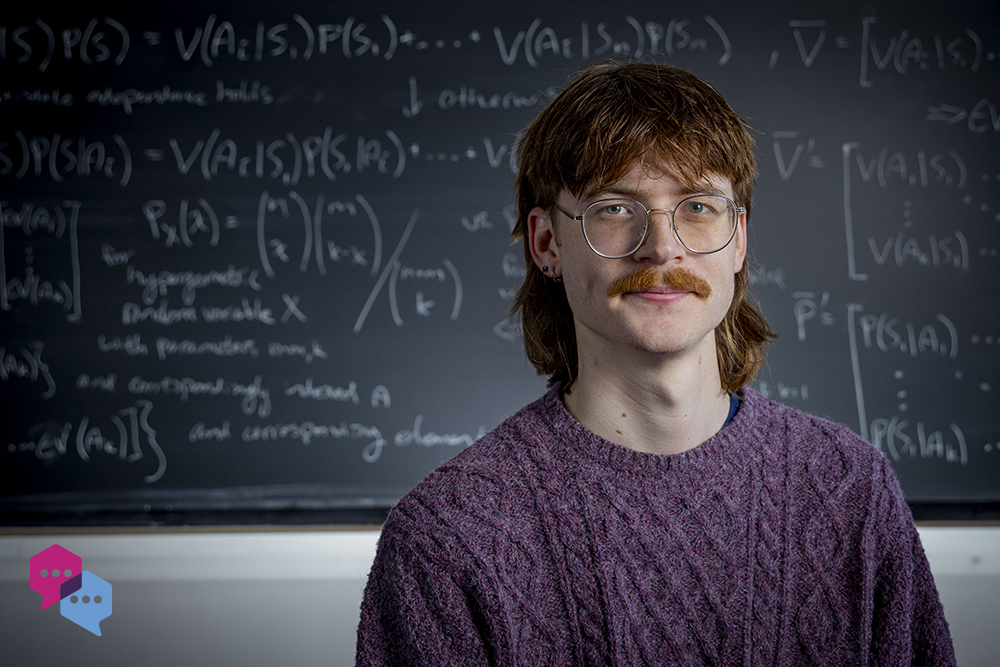Samuel Ellington is a senior majoring in mathematics and minoring in philosophy and creative writing within the UNC College of Arts and Sciences. He develops algorithms that deconstruct predictions to predict the probability of an event occurring to more efficiently diagnose problems in decision theory and game theory.
Q: How did you discover your specific field of study?
A: In a philosophy seminar on rational agency, which is when an agent’s beliefs and preferences can be accurately modeled by certain mathematical functions. While no one is 100% rational all the time, studying theories like Bayesianism — and its applications to randomness, expectation, surprise, hypothesis, confirmation, and more — still teaches us a great deal about how people think.
The mathematics behind rationality range from simple arithmetic to more complex methods like discrete combinatorics and calculus. As more variables are considered, the calculations tend to get remarkably tedious. So, inspired by the maxim that the best mathematicians must be a little lazy, I thought, “What if we could get computers to do this for us?” And to my delight, they can!
Q: Academics are problem-solvers. Describe a research challenge you’ve faced and how you overcame it.
A: I was woefully underprepared to take on my project developing algorithms to analyze actions. I’m neither a computer scientist nor a programmer nor a full-stack developer. I had a basic understanding of programming with Python, but the algorithms I developed required dynamic user inputs — a problem better addressed with an interactive, web-friendly language like JavaScript. So, I had to learn JavaScript. Then, I had to learn enough HTML to build a webpage to house my JavaScript machinery, and I had to learn enough CSS to make the whole thing less, well, hideous. Thankfully, there’s a generous community of brilliant people at UNC who were more than happy to help me navigate these problems.
Q: Describe your research in five words.
A: Decision theory made simple manageable.
Q: Who or what inspires you? Why?
A: Poets and poetry — always. Poetry is the place where the lines between logic and illogic, rationality and irrationality, are most naturally blurred. Some poets have so successfully exempted their characters and stories from the rigorous constraints of the quotidian that they’ve even been credited with inventing a whole new system of measuring time (check out Sharon Cameron’s book “Lyric Time”).
Poets like Airea Dee Matthews have even chosen poetry to critically examine Smithian and Debordian economics (check out “Bread and Circus”). Since pure rationality is rarely exhibited in human behavior, it serves as sort of a poetic ideal — a concept to experiment with to illuminate the human condition.
Q: If you could pursue any other career, what would it be and why?
A: Well, I haven’t exactly had a career yet. I expect to graduate in May 2025 with my B.A. in math and — fingers crossed — head to grad school in the fall, with the ultimate goal of being teacher. I’m drawn to teaching for the same reason I’m drawn to math: It’s tortuous, even chaotic. It cannot be systematized or standardized. Each and every student, problem, and topic requires a unique approach and careful consideration. It’s exciting!


